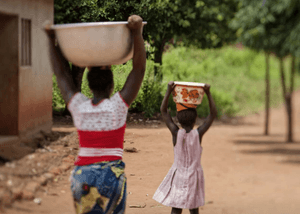Real Choices, Real Lives: Benin, Togo and Uganda

This report, focusing on evidence from Benin, Togo and Uganda, forms part of Plan International’s ongoing research, Real Choices, Real Lives – a qualitative, longitudinal study following the lives of girls living in nine countries* around the world from their birth (in 2006), until they turn 18 (in 2024).
Through annual data collection, Real Choices, Real Lives captures unique insights into what it means to grow up as a girl across different contexts, including how families and communities shape expectations of what girls can do, and be, right from the moment they are born.
Through annual data collection, Real Choices, Real Lives captures unique insights into what it means to grow up as a girl across different contexts, including how families and communities shape expectations of what girls can do, and be, right from the moment they are born.
In 2022, we prepared a series of regional reports drawing on data spanning the COVID-19 pandemic – specifically data captured in 2019/2020 and 2021. By 2021, a total of 118 girls – 37 from the Sub-Saharan Africa region – were still participating in the study. The girls’ voices, along with those of their families, provide a powerful perspective on how the pandemic has impacted girls and their communities, with often differential impacts exacerbated by and exacerbating existing inequalities and gendered divisions.
Download the report
Regional Report – Africa
3.25 mb
In the Sub-Saharan African countries, concerns about sex and sexual health increased, with caregivers expressing concern about early pregnancy and girls about risks related to sexual violence, as well as their periods in general. The advice which dominates tells girls to “stay away from boys”- with abstinence the main form of contraception, and an onus on girls to protect themselves. Violence and fear of violence increased between 2019-2021, with COVID-19 cited as being a key driver.
Women’s profile in public decision-making roles is most notable in Uganda, whilst in Benin and Togo decision-making appears to be more limited to the domestic sphere. However, the girls are ambitious – aspiring to be independent, and to work in professions where they can be financially stable. In reality, ambitions are often undercut by attitudes about what is appropriate for girls to be and do – with girls spending a lot of time on domestic work and being surrounded by expectations that they will marry and ‘be obedient’.
The intensification of poverty in Sub-Saharan Africa has impacted on all aspects of the girls’ lives: school closures, combined with reducing financial stability for a lot of families are restricting girls’ chances of staying in school. Indeed, between the ages of 13 and 15 – our data has tracked a deterioration in school attendance.
“I will be happy when I have successfully completed my studies and become a certified accountant with a salary. People say that work sets men free…work assures a person’s independence.”
Catherine, Benin, 2019**
*The 9 countries are: Benin, Brazil, Cambodia, Dominican Republic, El Salvador, the Philippines, Togo, Uganda, and Vietnam.
**Names used in the study are pseudonyms.


